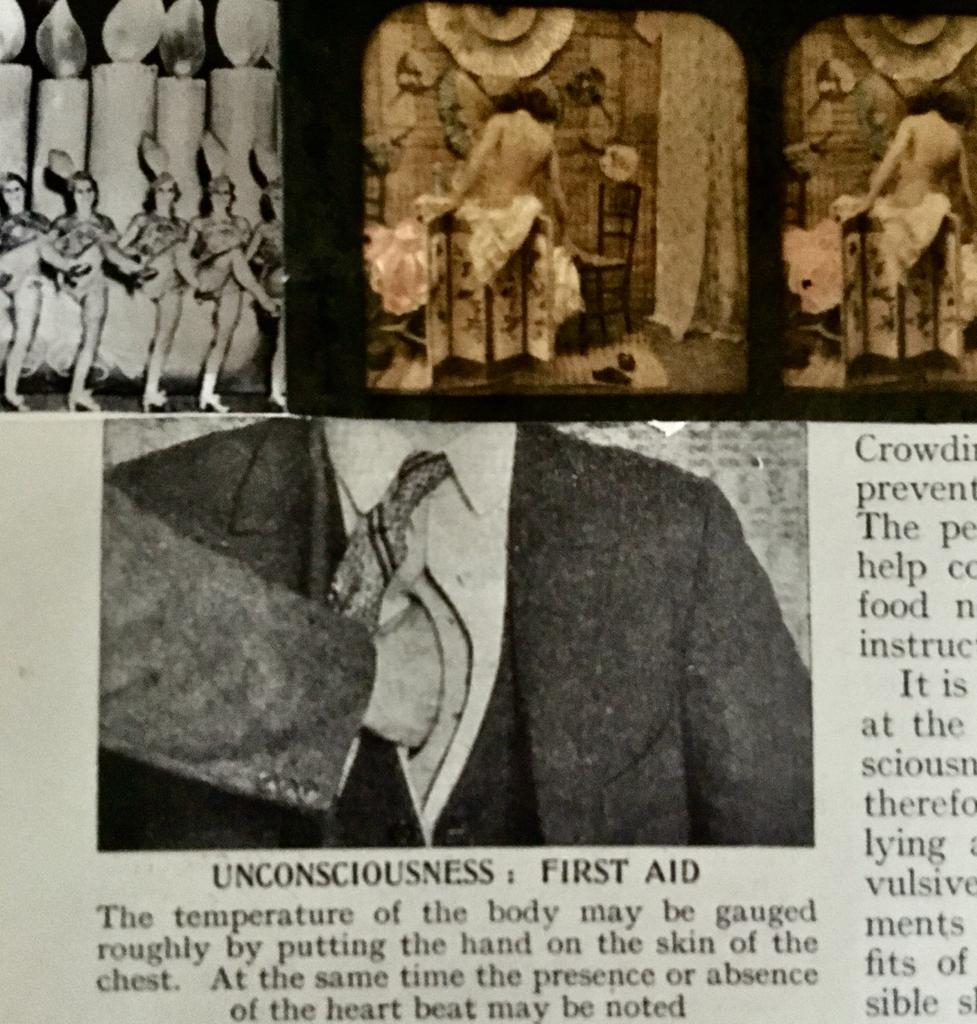This project presents a loose framework for understanding and repairing hegemonic social depletion. Social depletion refers to the critical gap between outflows- domestic, affective and reproductive- and the inflows that sustain their health and well being. Social depletion might be measured in terms of mental health, physical health, or the health of communities. In identifying the distinct interpersonal, systemic, and economic deformations of neoliberal capitalism my interest is in mapping a constellation for radical care and repair autonomous from the grasp of the mutated nation market state. To recognize the centrality of care in contemporary world building is to recognize care as a form of agency and resistance. The way we think about care is deeply rooted in our social, economic and political values. How and why can relational ethics of care embody a radical political practice? The deficiencies of hegemonic social depletion in financialized neoliberalism are twofold: the extraction of labor from disenfranchised citizens and migrants who occupy the working class sector of care, and the exhaustion of the productive force behind immaterial labor. How can we frame the genesis of care as an ecology, a public value, and embodied practice for economic and political resistance. Who creates and maintains social bonds? Where are they currently replenished and by whom? What do we mean by care economies? What does the body mean as a category of social and political action if we think about the body as a workplace? How does the body reproduce the power of the nation state? There is no social change, no cultural or political innovation, and no economic practice that is not expressed through or on the body. More specifically still, I am interested in discussing the kind of labor that exists outside of the mainstream market economies, whose bodies provide civic flotation to the wealthy upper and middle class. This series I will publish in the coming weeks will be looking at the ecology of care maintained and perpetuated by sex workers. Last week I was interviewed on Radio AVA in London. We discussed an expanded definition of care that includes economies of pleasure, sex work, and types of service work that allow for the regeneration and maintenance of our bodies and minds. As an embodied practice, interdependent care is not reliant on capitalist power structures, but rather it is reliant on the formation of community. On the show we discussed care ecologies in sex worker communities, once again upholding the interrelationality of any sensorial and or emotional labor, and the positive and negative associations between social reproduction and sex work. (A full recording and transcript of this interview will be made available soon)
I. Mutiny of the Body: Constellations Towards a Radical Ecology of Care
- [2020]
- Darya Diamond
- Europe
- South America

Image and artwork by Darya Diamond
This project presents a loose framework for understanding and repairing hegemonic social depletion. Social depletion refers to the critical gap between outflows- domestic, affective and reproductive- and the inflows that sustain their health and well being. Social depletion might be measured in terms of mental health, physical health, or the health of communities. In identifying the distinct interpersonal, systemic, and economic deformations of neoliberal capitalism my interest is in mapping a constellation for radical care and repair autonomous from the grasp of the mutated nation market state.
To recognize the centrality of care in contemporary world building is to recognize care as a form of agency and resistance. The way we think about care is deeply rooted in our social, economic and political values. How and why can relational ethics of care embody a radical political practice? The deficiencies of hegemonic social depletion in financialized neoliberalism are twofold: the extraction of labor from disenfranchised citizens and migrants who occupy the working class sector of care, and the exhaustion of the productive force behind immaterial labor. How can we frame the genesis of care as an ecology, a public value, and embodied practice for economic and political resistance.
Who creates and maintains social bonds? Where are they currently replenished and by whom? What do we mean by care economies? What does the body mean as a category of social and political action if we think about the body as a workplace? How does the body reproduce the power of the nation state? There is no social change, no cultural or political innovation, and no economic practice that is not expressed through or on the body. More specifically still, I am interested in discussing the kind of labor that exists outside of the mainstream market economies, whose bodies provide civic flotation to the wealthy upper and middle class. This series I will publish in the coming weeks will be looking at the ecology of care maintained and perpetuated by sex workers.
Last week I was interviewed on Radio AVA in London. We discussed an expanded definition of care that includes economies of pleasure, sex work, and types of service work that allow for the regeneration and maintenance of our bodies and minds. As an embodied practice, interdependent care is not reliant on capitalist power structures, but rather it is reliant on the formation of community. On the show we discussed care ecologies in sex worker communities, once again upholding the interrelationality of any sensorial and or emotional labor, and the positive and negative associations between social reproduction and sex work. (A full recording and transcript of this interview will be made available soon)
The term ‘Social Reproduction’ broadly refers to forms of activities, capacities, and labour that replenish and reproduce ‘productive’ humans under capitalism. It is the work of making and remaking people both on an everyday level and on a generational level, reproducing and replenishing the bodies that become potential labor power. Care is the expanded field of social reproduction, and while these terms are not inherently interchangeable the terminology of care has come to define a more complex understanding of what social reproduction can be. Redefining care as both a collectivized value and a collectivized practice allows for a broader analysis of how the reorganization of ‘care work’ can have profound implications for larger social, political and cognitive repair.
Care requires not only nurturing relationships but also the physical and mental work of taking care of, cleaning up after, and maintaining bodies. This includes the professionalized sector of domestic work and what may be considered “immaterial labor” such as jobs implementing caring duties that used to be allocated to the home, schools, hospitals, hospices, nursing homes, care facilities for disabled people, funeral homes etc. which includes necessary manual domestic labor such as cleaning, preparing food, removing waste. Care includes economies of pleasure such as sexual work, types of service work that allow for the regeneration and maintenance of the bodies and minds. It can be situated as caring for, caring about, care-giving, and caring with. An expanded definition of care also includes the capacity for communities to feel emotionally supported and connected to their neighborhood and their extended kin beyond the immediate institution of the family.
Focusing on care in economies of pleasure such as the multi-faceted forms of sex work and types of service work that allow for the regeneration and maintenance of the bodies and minds, let us examine the personal and public forms of care. What are the dimensions that join to generate “integrated act of care”, the affective and ethical dispositions involved in concern, worry, and taking responsibility for another’s well being. In this way, caring about and taking care of are both extremely personal and simultaneously relational whether the embodiment of those terms might take the shape of preparing a meal for your kin, providing a BDSM spanking session, or providing an emotional space for listening and sharing with colleagues. In the realm of sex work communities, these practices are an essential part of the maintenance of social (and anti-social) bodies both as services to clients, as well as services to one another. Communities of sex workers are not unique in the necessity of mutual aid, mutual support and collectivized care. They are one of the many kinds of communities of laborers that are negated, discriminated against and or criminalized in one form another. The philosophy of care in sex work is a theoretical exercise through which we can look at the philosophy of care as a practice based on interdependent responsibilities to one another, corroborating a radical ecology of care that is non-hierarchical and altogether collective.
Darya Diamond
Darya is an artist, writer, and sex worker.
III. Mutiny of the Body: LA BRUXA EROTICA NEUROTICA

I. DEATH BY STOCKINGS II. JOSHUA TREE IV. ICONIC OCTOPUS ON SECRETARY Read more
II. Mutiny of the Body: On Sex Work and the Political Economy of Care

In this essay I want to continue looking at sex work as a dimension that generates what Joan Tronto calls “integrated acts of care” or the affective and ethical dispositions involved in relational practices of fostering attention and holding space for another human. Read more
Exploring economies of touch and haptic forms of labour
14.12.2020, 15.30-17.00 (GMT)

Mark your calendars! *A conversation about sensorial economies of touch and haptic labour* Find out more